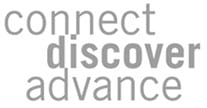A Color-Boost from Sunless Tanning is No Safer than Lying in the Sun for Hours
- Posted on: Aug 15 2018
 We’re approaching the end of summer, and that may mean a last-minute getaway for some people. Many patients question whether the merit of sunless tanning to get a slight boost of color before they head off to a tropical location or attend a special event. Because tanning bed manufacturers have done their homework and have stellar marketing, many people believe that their sunless tanning is not only safe but also beneficial, a gentle way to boost their glow and their vitamin D. Because questions may remain for several years to come, it is necessary for us to continue the conversation about the dangers of sunless tanning.
We’re approaching the end of summer, and that may mean a last-minute getaway for some people. Many patients question whether the merit of sunless tanning to get a slight boost of color before they head off to a tropical location or attend a special event. Because tanning bed manufacturers have done their homework and have stellar marketing, many people believe that their sunless tanning is not only safe but also beneficial, a gentle way to boost their glow and their vitamin D. Because questions may remain for several years to come, it is necessary for us to continue the conversation about the dangers of sunless tanning.
Sunshine and Sunless Light
Patients may need to be enlightened about light. Ultraviolet radiation is present in sunlight as well as the lamps that are used in tanning beds. It is ultraviolet radiation that can cause skin cancer; it is a carcinogen just like cigarettes are, so it is unsafe in any amount. In addition to accumulating damage within skin cells that could lead to mutation, UV rays are also directly related to premature aging. Because the effects of UV exposure are cumulative, the full extent of damage may not be realized for several years.
Sunless light is no safer than the natural ultraviolet light of the sun. In fact, studies show that sunless tanning increases the risk of basal cell carcinoma by 29 percent. Sunless tanners have a 67% risk of squamous cell carcinoma, and a 75% increase in their risk of melanoma if their sunless tanning begins before age 35. This is a disturbing statistic considering that many sunless tanners are teens.
About vitamin D
Sun exposure has been identified as an optimal method of sustaining healthy vitamin D levels. However, it takes very little sunlight for the body to respond appropriately. Sitting in the sunshine during the early morning hours when ultraviolet light is gentler is sufficient for most people. Smartphone apps have even been developed to help identify exactly how much sun exposure is appropriate based on a person’s location. Fish oils and other supplements are also advantageous to combat vitamin D deficiency and are much safer than exposing the skin to ultraviolet light.
The American Society for Mohs Surgery has several events coming up, including Fundamentals of Mohs Surgery Course and Basal Cell and Squamous Cell Cancer Dermatopathology. Learn more about our organization or register for an upcoming workshop at (800) 616-2767.
Posted in: Skin Cancer


